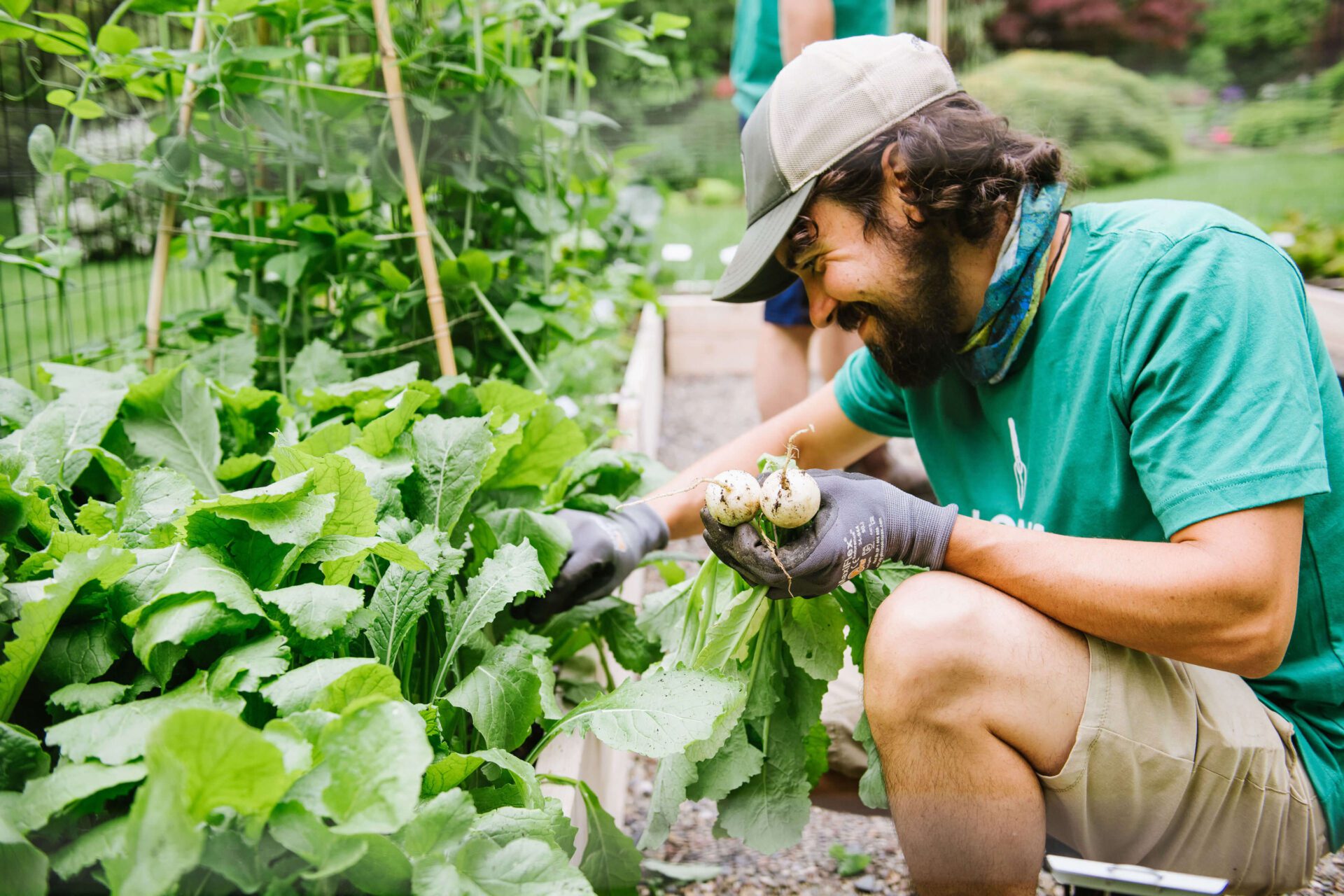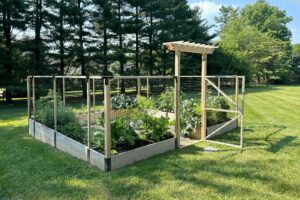
[et_pb_section fb_built=”1″ admin_label=”section” _builder_version=”4.16″ da_disable_devices=”off|off|off” global_colors_info=”{}” da_is_popup=”off” da_exit_intent=”off” da_has_close=”on” da_alt_close=”off” da_dark_close=”off” da_not_modal=”on” da_is_singular=”off” da_with_loader=”off” da_has_shadow=”on”][et_pb_row admin_label=”row” _builder_version=”4.16″ background_size=”initial” background_position=”top_left” background_repeat=”repeat” hover_enabled=”0″ global_colors_info=”{}” sticky_enabled=”0″][et_pb_column type=”4_4″ _builder_version=”4.16″ custom_padding=”|||” global_colors_info=”{}” custom_padding__hover=”|||”][et_pb_text _builder_version=”4.27.0″ _module_preset=”default” text_text_color=”#000000″ link_font=”|700|||on|||#000000|” link_text_color=”#000000″ global_colors_info=”{}”]
Gardening offers a wealth of benefits that extend far beyond the simple pleasure of harvesting fresh fruits and vegetables. By cultivating your own garden, you not only gain access to nutrient-rich produce but also engage in an activity that enhances physical fitness, boosts mental well-being, and fosters social connections. Gardening connects people with nature, promoting a healthier and more fulfilling lifestyle. Additionally, growing your own food reduces reliance on commercially-produced, chemically-treated produce, contributing to a more sustainable way of living.
[/et_pb_text][et_pb_text _builder_version=”4.27.0″ _module_preset=”default” text_text_color=”#000000″ link_font=”|700|||on|||#000000|” link_text_color=”#000000″ hover_enabled=”0″ global_colors_info=”{}” header_2_font_size_last_edited=”on|phone” header_2_font_size_phone=”24px” header_2_line_height=”1.5em” sticky_enabled=”0″]
Nutritional Value of Homegrown Food
Home-grown produce is often more nutrient-rich than store-bought options, particularly when harvested fresh and free from pesticides. According to the University of California, “Fresh fruits and vegetables play a very significant role in human nutrition, especially as sources of vitamins (Vitamin C, Vitamin A, Vitamin B6, thiamine, niacin), minerals, and dietary fiber” (University of California Agriculture and Natural Resources 2024). Freshly harvested produce typically retains more of these nutrients compared to store-bought options, which can lose nutritional value during transportation and storage.
When you grow your own food, you have control over what you eat, allowing you to avoid the chemicals commonly used in commercial farming. For example, glyphosate, a widely used herbicide, has raised concerns about its potential health risks, including a possible link to cancer. Although the research is ongoing, the World Health Organization classifies glyphosate as a “probable human carcinogen.” By choosing organic gardening methods, you can reduce your and your family’s exposure to harmful chemicals.
Additionally, growing a variety of fruits and vegetables in your garden allows you to tailor your diet to your nutritional needs. A diverse, plant-rich diet supports overall health, lowering the risk of chronic diseases like cardiovascular disease and diabetes. The Harvard T.H. Chan School of Public Health emphasizes the importance of consuming a variety of produce, stating, “Eat a variety of types and colors of produce in order to give your body the mix of nutrients it needs” (Harvard T.H. Chan School of Public Health 2024).
[/et_pb_text][et_pb_image src=”https://backyard-eats.com/wp-content/uploads/2024/08/DSC7741-scaled.jpg” title_text=”_DSC7741″ show_bottom_space=”off” _builder_version=”4.27.0″ _module_preset=”default” custom_margin=”20px||20px||true|false” global_colors_info=”{}”][/et_pb_image][et_pb_divider show_divider=”off” _builder_version=”4.27.0″ _module_preset=”default” global_colors_info=”{}”][/et_pb_divider][et_pb_text _builder_version=”4.27.0″ _module_preset=”default” text_text_color=”#000000″ link_font=”|700|||on|||#000000|” link_text_color=”#000000″ global_colors_info=”{}” header_2_line_height=”1.5em” header_2_font_size_phone=”24px” header_2_font_size_last_edited=”on|phone”]
Physical Health Benefits of Gardening
Gardening is a surprisingly effective form of physical exercise. Activities such as planting, weeding, and harvesting all contribute to daily exercise goals, engaging various muscle groups and promoting overall fitness. According to Dan Hickey from the National Gardening Association, “Gardening uses all the major muscle groups, the muscles that do most of the calorie burning in the human body. Legs, buttocks, shoulders, stomach, arms, neck, and back all get a workout. Gardening also increases flexibility and strengthens joints” (Hickey 2024).
Regular physical activity is crucial for reducing the risk of chronic diseases such as obesity, heart disease, and diabetes. The physical demands of gardening, whether it’s digging, raking, or lifting, can help maintain a healthy weight, improve cardiovascular health, and enhance muscle tone and strength. Hickey also suggests that beginner gardeners start with shorter bursts of activity and gradually work up to longer or more demanding tasks, making gardening an accessible form of exercise for people of all ages and fitness levels.
Another significant benefit of gardening is exposure to sunlight, which stimulates the body’s production of Vitamin D. Vitamin D is essential for bone health and immune function. According to the National Institute of Health, “Without sufficient vitamin D, bones can become thin, brittle, or misshapen…Together with calcium, vitamin D also helps protect older adults from osteoporosis” (National Institutes of Health, Office of Dietary Supplements 2024). Spending time in the garden allows for the synthesis of Vitamin D, contributing to overall health and well-being.
[/et_pb_text][et_pb_image src=”https://backyard-eats.com/wp-content/uploads/2024/08/DSC7798-scaled.jpg” title_text=”_DSC7798″ show_bottom_space=”off” _builder_version=”4.27.0″ _module_preset=”default” custom_margin=”20px||20px||true|false” global_colors_info=”{}”][/et_pb_image][et_pb_text _builder_version=”4.27.0″ _module_preset=”default” text_text_color=”#000000″ link_font=”|700|||on|||#000000|” link_text_color=”#000000″ global_colors_info=”{}” header_2_line_height=”1.5em” header_2_font_size_phone=”24px” header_2_font_size_last_edited=”on|phone”]
Mental Health Benefits of Gardening
Gardening also offers numerous mental health benefits. The act of gardening provides an opportunity to disconnect from the stresses of daily life, offering a peaceful and meditative environment. Engaging with nature has been shown to reduce stress, anxiety, and depression, and enhance overall mood.
Richard Thompson from the Royal College of Physicians advocates for “green care,” a treatment method that emphasizes the therapeutic benefits of spending time in nature. Thompson suggests that exposure to green spaces can improve mental well-being by treating “the whole person” rather than just addressing symptoms (Thompson 2018). Gardening, in particular, has been shown to be beneficial for individuals recovering from illness or injury, offering a gentle and enjoyable form of physical therapy.
The American Psychological Association also supports the positive impact of green spaces, noting that even urban parks and small gardens can provide significant mental health benefits (American Psychological Association 2020). Gardening encourages mindfulness, allowing individuals to focus on the present moment and engage their senses. The repetitive tasks of gardening can be soothing, providing a sense of accomplishment and progress as plants grow and thrive.
[/et_pb_text][et_pb_image src=”https://backyard-eats.com/wp-content/uploads/2024/08/DSC7906-scaled.jpg” title_text=”_DSC7906″ show_bottom_space=”off” _builder_version=”4.27.0″ _module_preset=”default” custom_margin=”20px||20px||true|false” global_colors_info=”{}”][/et_pb_image][et_pb_text _builder_version=”4.27.0″ _module_preset=”default” text_text_color=”#000000″ link_font=”|700|||on|||#000000|” link_text_color=”#000000″ global_colors_info=”{}” header_2_line_height=”1.5em” header_2_font_size_phone=”24px” header_2_font_size_last_edited=”on|phone”]
Social Advantages of Gardening
In addition to its physical and mental health benefits, gardening can also foster social connections. Community gardens, in particular, offer a space for people to come together, share knowledge, and work toward a common goal. These gardens promote a sense of belonging and community, helping to combat social isolation and loneliness.
Community gardens provide educational opportunities and increase access to fresh produce, particularly in urban areas where green space may be limited. They also serve as a hub for social interaction, where neighbors can collaborate, share resources, and support one another. These social connections can enhance personal well-being, creating a supportive network that contributes to overall quality of life.
Gardening in one’s own backyard can also create opportunities for social interaction, whether it’s sharing homegrown produce with friends and family or participating in gardening clubs and local events. The shared experience of gardening can strengthen relationships and create lasting bonds.
[/et_pb_text][et_pb_image src=”https://backyard-eats.com/wp-content/uploads/2024/08/DSC7959-scaled.jpg” title_text=”_DSC7959″ show_bottom_space=”off” _builder_version=”4.27.0″ _module_preset=”default” custom_margin=”20px||20px||true|false” global_colors_info=”{}”][/et_pb_image][et_pb_text _builder_version=”4.27.0″ _module_preset=”default” text_text_color=”#000000″ link_font=”|700|||on|||#000000|” link_text_color=”#000000″ global_colors_info=”{}” header_2_line_height=”1.5em” header_2_font_size_phone=”24px” header_2_font_size_last_edited=”on|phone”]
Environmental Impact of Homegrown Food
Beyond personal health benefits, gardening also supports environmental sustainability. Growing your own food reduces reliance on commercially produced food, which often involves extensive transportation and the use of chemical fertilizers and pesticides. Home gardens have a lower carbon footprint, as produce only needs to travel from your garden to your kitchen.
Furthermore, home gardeners can choose organic methods to avoid harmful chemicals like glyphosate, which have been linked to health risks and environmental damage (Turner and Borwick 2023). By practicing sustainable gardening, you contribute to a healthier ecosystem, supporting soil health and local biodiversity.
In addition, gardening allows individuals to connect with the earth and develop a greater appreciation for nature. This connection can inspire more environmentally conscious behavior, such as composting, water conservation, and supporting local pollinators by planting native plants. These small, individual actions collectively contribute to a more sustainable future.
[/et_pb_text][et_pb_text _builder_version=”4.27.0″ _module_preset=”default” text_text_color=”#000000″ link_font=”|700|||on|||#000000|” link_text_color=”#000000″ global_colors_info=”{}” header_2_line_height=”1.5em” header_2_font_size_phone=”24px” header_2_font_size_last_edited=”on|phone”]
Conclusion
Gardening is more than just a hobby; it is a powerful tool for improving physical, mental, and social health. By growing your own food, you gain access to fresh, nutrient-rich produce while reducing exposure to harmful chemicals. Gardening also provides an enjoyable form of physical exercise, promotes mental well-being through connection with nature, and fosters social connections within the community.
In addition to these personal benefits, gardening supports environmental sustainability by reducing the carbon footprint of food production and encouraging organic practices. Whether tending to a backyard garden or participating in a community plot, the act of gardening offers a holistic approach to health and well-being, enriching both the body and mind. By cultivating a garden, you’re building a more sustainable lifestyle and enjoying the many rewards of fresh, home-grown produce.
[/et_pb_text][et_pb_button button_url=”@ET-DC@eyJkeW5hbWljIjp0cnVlLCJjb250ZW50IjoicG9zdF9saW5rX3VybF9wYWdlIiwic2V0dGluZ3MiOnsicG9zdF9pZCI6IjU4MjY0In19@” url_new_window=”on” button_text=”BOOK A CONSULTATION” button_alignment=”left” button_alignment_tablet=”left” button_alignment_phone=”left” button_alignment_last_edited=”on|tablet” disabled_on=”off|off|off” _builder_version=”4.27.0″ _dynamic_attributes=”button_url” _module_preset=”737bea5a-e063-4b24-af3f-21ce28f0bf38″ button_bg_color=”gcid-3b5ac83a-684c-4379-a559-60b2aa9e8157″ button_border_color=”gcid-3b5ac83a-684c-4379-a559-60b2aa9e8157″ button_letter_spacing=”1px” button_font=”Roboto|700||on|||||” z_index=”90″ custom_margin=”0px|0px|30px|0px|false|false” custom_margin_tablet=”0px|0px|0px|0px|false|false” custom_margin_phone=”0px|0px|0px|0px|false|false” custom_margin_last_edited=”on|desktop” hover_enabled=”0″ locked=”off” global_colors_info=”{%22gcid-3b5ac83a-684c-4379-a559-60b2aa9e8157%22:%91%22button_border_color__hover%22,%22button_bg_color%22,%22button_border_color%22%93}” button_text_color__hover_enabled=”on|hover” button_text_color__hover=”#844B67″ button_bg_enable_color__hover=”on” button_border_color__hover=”#88667b” button_border_color__hover_enabled=”on|desktop” sticky_enabled=”0″][/et_pb_button][/et_pb_column][/et_pb_row][et_pb_row _builder_version=”4.27.0″ _module_preset=”default” global_colors_info=”{}”][et_pb_column type=”4_4″ _builder_version=”4.27.0″ _module_preset=”default” global_colors_info=”{}”][et_pb_toggle title=”FURTHER READING” open_toggle_text_color=”#FFFFFF” icon_color=”#FFFFFF” toggle_icon=”||fa||400″ open_icon_color=”#FFFFFF” open_toggle_icon=”||fa||900″ _builder_version=”4.27.0″ _module_preset=”default” title_text_color=”#FFFFFF” body_font=”|600|||||||” body_text_color=”#FFFFFF” background_color__hover=”#BFBFBF” background_enable_color__hover=”on” global_colors_info=”{%22gcid-c8781551-ca60-42c8-ba6c-c1e000785908%22:%91%22background_color%22%93}” title_font=”|700|||||||” background_color=”gcid-c8781551-ca60-42c8-ba6c-c1e000785908″ background__hover_enabled=”on|desktop” hover_enabled=”0″ sticky_enabled=”0″]
American Psychological Association. “The Healing Power of Nature.” *American Psychological Association*. April 2020. https://www.apa.org/monitor/2020/04/nurtured-nature.
Harvard T.H. Chan School of Public Health. “The Nutrition Source: Vegetables and Fruits.” *Harvard T.H. Chan School of Public Health*. Accessed August 12, 2024. https://www.hsph.harvard.edu/nutritionsource/what-should-you-eat/vegetables-and-fruits/.
Hickey, Dan. “Gardening is Exercise.” The Garden.org. Last modified August 10, 2024. https://garden.org/learn/articles/view/126/Gardening-is-Exercise/.
National Institutes of Health, Office of Dietary Supplements. “Vitamin D: Fact Sheet for Health Professionals.” *National Institutes of Health*. Accessed August 12, 2024. https://ods.od.nih.gov/factsheets/VitaminD-HealthProfessional/.
Soares, D., L. Silva, S. Duarte, A. Pena, and A. Pereira. “Glyphosate Use, Toxicity and Occurrence in Food.” Foods 10, no. 11 (November 12, 2021): 2785. https://doi.org/10.3390/foods10112785. PMID: 34829065; PMCID: PMC8622992.
Thompson, Roger. “Gardening for Health: A Regular Dose of Gardening.” Clinical Medicine 18, no. 3 (June 2018): 201-205. https://doi.org/10.7861/clinmedicine.18-3-201. PMID: 29858428; PMCID: PMC6334070.
Turner, Terry, and Kim Borwick. “Roundup Weed Killer: Uses, Safety & Cancer Risk.” Consumer Notice, LLC. Accessed September 29, 2023. https://www.consumernotice.org/environmental/pesticides/roundup/.
University of California Agriculture and Natural Resources. “Postharvest Technology of Horticultural Crops.” *University of California Agriculture and Natural Resources*. Accessed August 12, 2024. https://ucanr.edu/sites/Postharvest_Technology_Center/Publications_722/Postharvest_Technology_Newsletter/.
[/et_pb_toggle][/et_pb_column][/et_pb_row][/et_pb_section]






